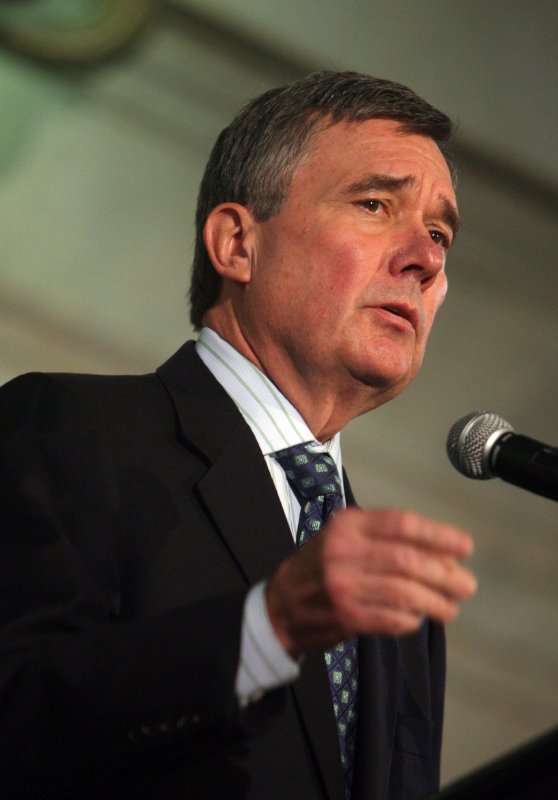R. Gil Kerlikowske, director of the Office of National Drug Control Policy, said in a speech at the National Press Club in Washington that legalizing marijuana won't solve the nation's drug problem, but under the Affordable Care Act more will have access to addiction treatment.
UPI/Bill Greenblatt |
License Photo
WASHINGTON, April 17 (UPI) -- U.S. President Barack Obama's point man for drug policy said legalizing marijuana won't solve the nation's drug problem, but addiction treatment will increase.
Gil Kerlikowske, director of the Office of National Drug Control Policy, said in a speech at the National Press Club in Washington the legal possession of small amounts of marijuana in Colorado and Washington state presents complex questions.
"The Justice Department's responsibility to enforce the Controlled Substances Act remains unchanged," Kerlikowske told reporters. "Neither a state nor the executive branch can nullify a statute passed by Congress, nor should we lose sight of the fundamental fact that using marijuana has public health consequences, and the most responsible public policy is one that restricts its availability and discourages its use."
Law enforcement will uphold federal law and will continue to pursue drug traffickers, Kerlikowske said via a recording by Minnesota Public Radio.
However, marijuana has public health consequences and it is the administration's policy to focus on evidence-based drug policy reform.
For example, most patients see their primary care physician at least once a year and that annual meeting is a good time to address addiction issues.
In addition, the Obama administration committed -- some via the Affordable Care Act -- more than $10 billion to drug education programs and support for expanding access to drug treatment for addiction, Kerlikowske said.















